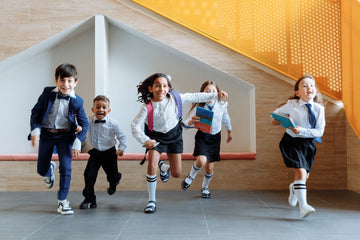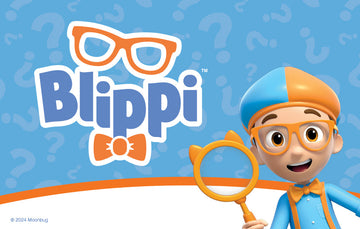Making friends is an important part of growing up for children. Parents play a key role in guiding their kids through the process of socializing and forming connections with others. Learning to build friendships can boost confidence and provide support throughout childhood.
There are many ways that parents can assist their kids in developing these skills. By encouraging social interactions, setting up playdates, and teaching important communication methods, they can help their children thrive in their social lives.
1) Organize playdates
Organizing playdates is a great way for kids to make friends. Parents can invite classmates or neighbors to play together in a safe environment.
Choosing a fun activity helps children connect. Simple games, arts and crafts, or outdoor sports can keep them engaged. It allows kids to interact and build relationships in a relaxed setting.
Setting a regular schedule is also helpful. Having playdates every week or month can create consistency. This gives kids something to look forward to and helps strengthen friendships over time.
Parents can plan activities that encourage teamwork. Group games promote communication and cooperation, which helps kids learn social skills. This can make it easier for them to form lasting friendships.
Communication with other parents is key. Working together helps ensure everyone is comfortable and involved. It also opens doors for more playdates in the future.

2) Join local clubs
Joining local clubs can be a great way for kids to make friends. Many towns and cities offer various clubs that focus on different activities. Examples include sports teams, art classes, or book clubs.
These clubs provide a space where children can meet others who share their interests. Being part of a group helps kids practice social skills. They learn to communicate, share, and collaborate with their peers.
Parents can encourage their children to explore options that appeal to them. They might attend a local community center or check online for listings. Trying a few clubs can help kids find the right fit.
Participating in local clubs often leads to regular meetings or events. This regular contact helps children bond with others over time. It can lead to lasting friendships built from shared experiences.
3) Encourage hobbies
Encouraging kids to explore hobbies can help them make friends. Hobbies offer a fun way to meet others with similar interests. Kids can bond over shared activities, making it easier to connect.
Participating in group sports is one popular option. Teamwork in sports teaches kids how to communicate and cooperate. This can lead to lasting friendships.
Creativity is another way to form friendships. Art classes, music lessons, and drama clubs allow kids to express themselves. Working on projects together can build strong connections.
Encouraging outdoor activities is also valuable. Camping, hiking, or nature clubs get kids moving and exploring. They learn teamwork, which helps with social skills.
Parents can also support hobbies at home. Providing materials for arts and crafts or enabling access to books can spark interest. Kids who enjoy their hobbies are more likely to seek out friends with similar passions.
4) Role-play social scenarios
Role-playing can help kids practice making friends. By acting out different situations, they can learn how to start conversations, join in games, or invite others to play.
Parents can create simple scenarios. For example, they can role-play meeting someone new at school or asking to join a group activity. This helps kids understand how to approach peers.
It is important to keep it fun and low-pressure. Kids should feel comfortable trying out different ways to express themselves. They can practice saying friendly greetings or sharing a toy.
After role-playing, parents can discuss what went well. They can ask about what kids found easy or hard. This reflection can boost their confidence for real-life situations.
Encouraging role-play at home can prepare kids for social settings. It develops their social skills and helps them feel more confident when making new friends.
5) Teach empathy
Teaching empathy is essential for helping kids make friends. Empathy means understanding how others feel and showing kindness. When children learn to recognize emotions, they become better friends.
Parents can encourage empathy through simple activities. Reading stories about different characters helps kids see various perspectives. This can start discussions about feelings and reactions.
Role-playing can also be effective. Children can take turns acting out different scenarios. This allows them to practice responding to others' emotions in a safe environment.
Modeling empathetic behavior is another key step. When parents show empathy in their daily lives, kids notice. They learn to respond to others with care and concern.
Encouraging teamwork can also build empathy. Group activities promote sharing and cooperation. Kids learn to value each other's feelings and needs.
By teaching empathy, children develop stronger friendships. They learn to communicate better and treat others with respect. This foundation helps them create lasting bonds with their peers.
Understanding Social Dynamics
Social dynamics play a key role in how children make friends. Knowing the importance of peer interactions and developing social skills can help children create meaningful relationships.
The Importance of Peer Interaction
Peer interaction is crucial for children's social development. When kids engage with others, they learn how to communicate and share. These experiences help them understand different perspectives and teach them how to resolve conflicts.
Friendships offer emotional support and a sense of belonging. Children with friends often show more self-confidence. They also develop better problem-solving skills, as they learn to navigate various social situations.
It’s important for parents to encourage playdates and group activities. This helps children experience diverse social situations and boosts their chances of making friends.
Social Skills Development in Children
Social skills are essential for forming friendships. Children need to learn how to start conversations, listen actively, and respond appropriately. These skills can be practiced in different settings.
Parents can help by modeling appropriate behaviors. Showing how to greet someone or ask to join a game can make a big difference.
Role-playing different scenarios can also be beneficial. This prepares children for real-life situations.
Skills like sharing, taking turns, and showing empathy are critical. Encouraging children to express their feelings will strengthen their connections with others. By focusing on social skills, children can build strong friendships.
Creating a Supportive Environment
A supportive environment is key for helping children build friendships. Encouraging open communication and modeling positive behaviors are two important strategies. These approaches create a safe space for kids to navigate social situations.
Encouraging Open Communication
It is important to talk with children about their feelings. Encouraging them to share their thoughts can help them express themselves. Ask open-ended questions like, “What did you do at school today?”
Listening actively shows that their feelings and experiences matter. When children feel heard, they are more likely to share their social challenges and successes.
Parents can also help kids by discussing social situations. Role-playing different scenarios can prepare children for real-life interactions. This practice builds their confidence in making friends.
Modeling Positive Social Behaviors
Children learn by watching adults. When parents demonstrate good social skills, kids are more likely to follow suit. Simple actions like greeting neighbors or making small talk show children how to connect with others.
Using polite language and showing respect are vital lessons. When children see adults treat others kindly, they learn to do the same.
Encouraging teamwork through family activities can also help. Whether it’s playing a game or doing a project, working together teaches kids about cooperation and sharing. These experiences build strong foundations for lasting friendships.





